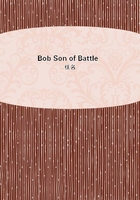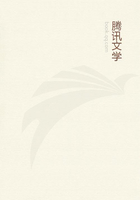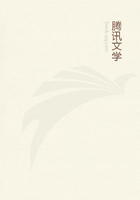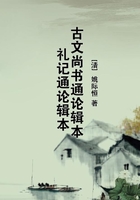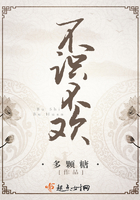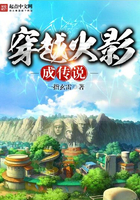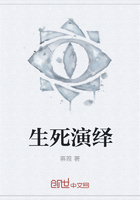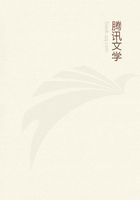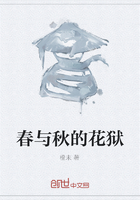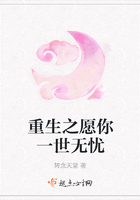Red deepened and glowed in the gold behind the three palms, and the upper rim of the round moon, red too as blood, crept about the desert.
Domini, leaning forward with one hand upon her horse's warm neck, watched until the full circle was poised for a moment on the horizon, holding the palms in its frame of fire. She had never seen a moon look so immense and so vivid as this moon that came up into the night like a portent, fierce yet serene, moon of a barbaric world, such as might have shone upon Herod when he heard the voice of the Baptist in his dungeon, or upon the wife of Pilate when in a dream she was troubled.
It suggested to her the powerful watcher of tragic events fraught with long chains of consequence that would last on through centuries, as it turned its blood-red gaze upon the desert, upon the palms, upon her, and, leaning upon her horse's neck, she too--like Pilate's wife--fell into a sort of strange and troubled dream for a moment, full of strong, yet ghastly, light and of shapes that flitted across a background of fire.
In it she saw the priest with a fanatical look of warning in his eyes, Count Anteoni beneath the trees of his garden, the perfume-seller in his dark bazaar, Irena with her long throat exposed and her thin arms drooping, the sand-diviner spreading forth his hands, Androvsky galloping upon a horse as if pursued. This last vision returned again and again. As the moon rose a stream of light that seemed tragic fell across the desert and was woven mysteriously into the light of her waking dream. The three palms looked larger. She fancied that she saw them growing, becoming monstrous as they stood in the very centre of the path of the nocturnal glory, and suddenly she remembered her thought when she sat with Androvsky in the garden, that feeling grew in human hearts like palms rising in the desert. But these palms were tragic and aspired towards the blood-red moon. Suddenly she was seized with a fear of feeling, of the growth of an intense sensation within her, and realised, with an almost feverish vividness, the impotence of a soul caught in the grip of a great passion, swayed hither and thither, led into strange paths, along the edges, perhaps into depths of immeasurable abysses. She had said to Androvsky that she would rather be the centre of a world tragedy than die without having felt to the uttermost even if it were sorrow. Was that not the speech of a mad woman, or at least of a woman who was so ignorant of the life of feeling that her words were idle and ridiculous? Again she felt desperately that she did not know herself, and this lack of the most essential of all knowledge reduced her for a moment to a bitterness of despair that seemed worse than the bitterness of death. The vastness of the desert appalled her. The red moon held within its circle all the blood of the martyrs, of life, of ideals. She shivered in the saddle. Her nature seemed to shrink and quiver, and a cry for protection rose within her, the cry of the woman who cannot face life alone, who must find a protector, and who must cling to a strong arm, who needs man as the world needs God.
Then again it seemed to her that she saw Androvsky galloping upon a horse as if pursued.
Moved by a desire to do something to combat this strange despair, born of the moonrise and the night, she sat erect in her saddle, and resolutely looked at the desert, striving to get away from herself in a hard contemplation of the details that surrounded her, the outward things that were coming each moment into clearer view. She gazed steadily towards the palms that sharply cut the moonlight. As she did so something black moved away from them, as if it had been part of them and now detached itself with the intention of approaching her along the track. At first it was merely a moving blot, formless and small, but as it drew nearer she saw that it was a horseman riding slowly, perhaps stealthily, across the sand. She glanced behind her, and saw Batouch not far off, and the fires of the nomads. Then she turned again to watch the horseman. He came steadily forward.
"Madame!"
It was the voice of Batouch.
"Stay where you are!" she called out to him.
She heard the soft sound of the horse's feet and could see the attitude of its rider. He was leaning forward as if searching the night. She rode to meet him, and they came to each other in the path of the light she had thought tragic.
"You followed me?"
"I cannot see you go out alone into the desert at night," Androvsky replied.
"But you have no right to follow me."
"I cannot let harm come to you, Madame."
She was silent. A moment before she had been longing for a protector.
One had come to her, the man whom she had been setting with those legendary figures who have saddened and appalled the imagination of men. She looked at the dark figure of Androvsky leaning forward on the horse whose feet were set on the path of the moon, and she did not know whether she felt confidence in him or fear of him. All that the priest had said rose up in her mind, all that Count Anteoni had hinted and that had been visible in the face of the sand-diviner. This man had followed her into the night as a guardian. Did she need someone, something, to guard her from him? A faint horror was still upon her.
Perhaps he knew it and resented it, for he drew himself upright on his horse and spoke again, with a decision that was rare in him.
"Let me send Batouch back to Beni-Mora, Madame."
"Why?" she asked, in a low voice that was full of hesitation.
"You do not need him now."
He was looking at her with a defiant, a challenging expression that was his answer to her expression of vague distrust and apprehension.
"How do you know that?"
He did not answer the question, but only said:
"It is better here without him. May I send him away, Madame?"
She bent her head. Androvsky rode off and she saw him speaking to Batouch, who shook his head as if in contradiction.
"Batouch!" she called out. "You can ride back to Beni-Mora. We shall follow directly."
The poet cantered forward.
"Madame, it is not safe."

